FedEx says it's a safe workplace. So why is Jessica James dead?
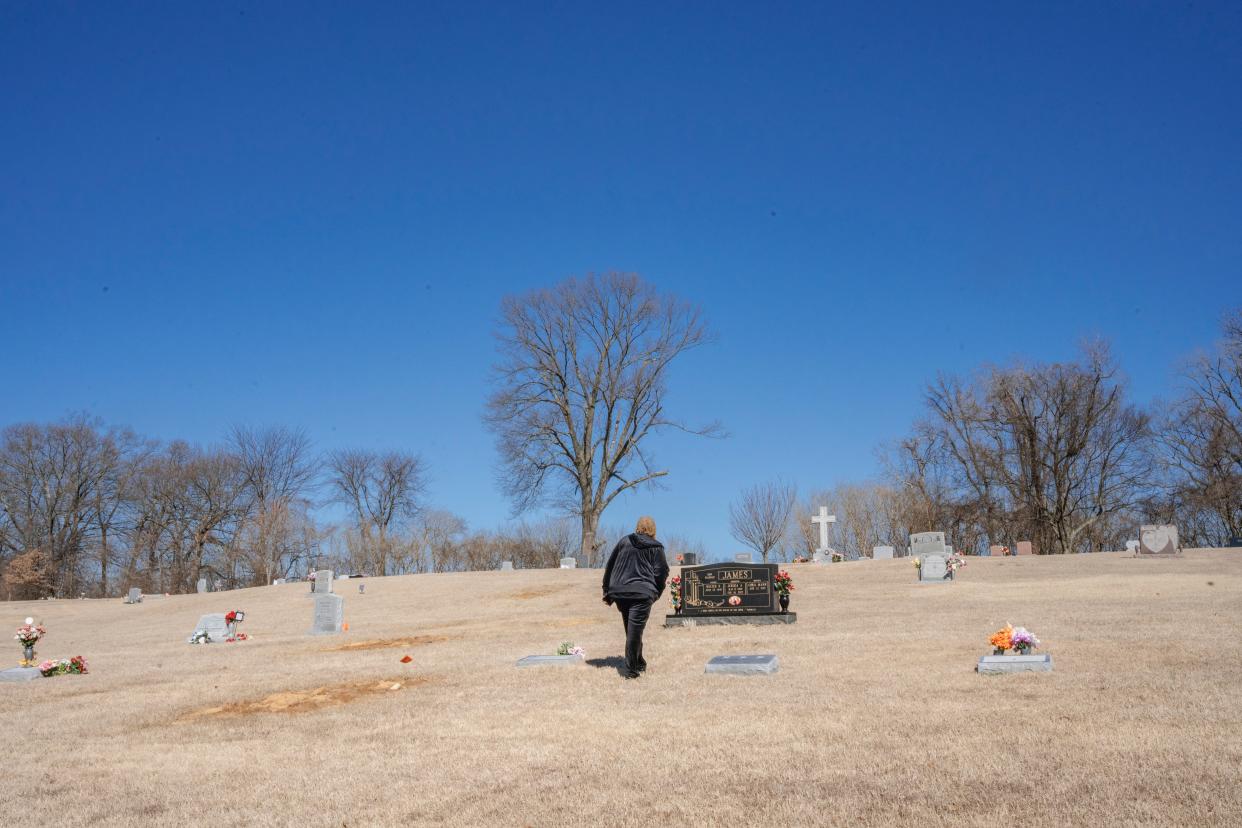
Jessica James had to get up and down that ramp.
Her job at FedEx’s World Hub was to help ensure the trucks in her area were loaded and unloaded on time. That meant navigating forklifts on sloped ramps, even when the ramps were falling apart. On the night of Feb. 18, 2022, FedEx surveillance video shows James, a team leader, climbing on and off a forklift, first to reposition the damaged ramp’s displaced metal grates, then again after a rear forklift wheel jumped the ramp’s curb, then again when another forklift driver came to help.
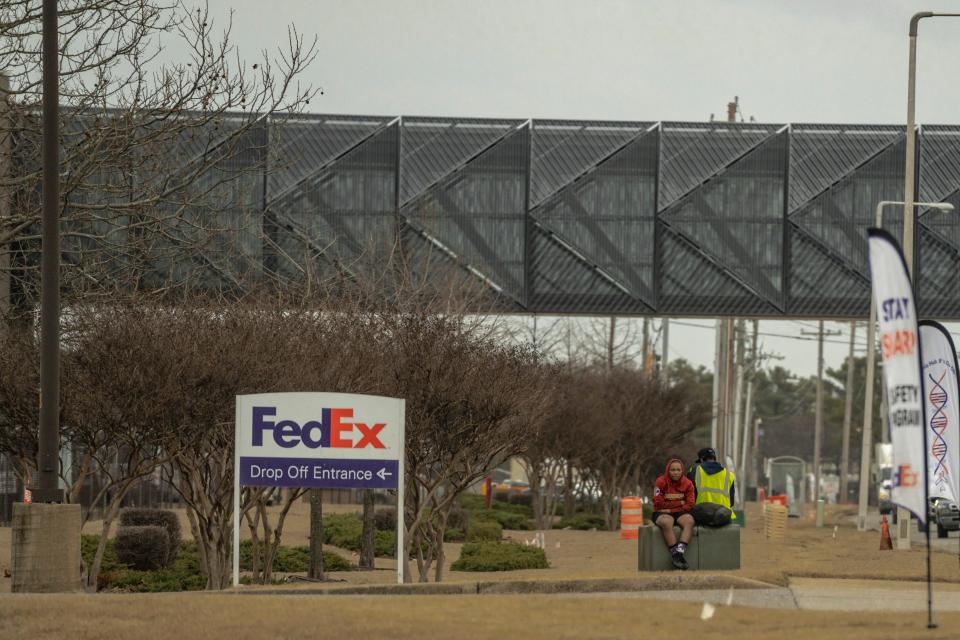
In what would be her last attempt to do her job, James got back on the forklift and put it in reverse, only for a right rear wheel to roll into a crater in the ramp.James, who was not wearing her seatbelt, was thrown from the nearly 5-ton forklift, which then fell on her. She was one of three employees to die in workplace incidents at Memphis-area FedEx locations in 2022 and seven since 2014.
A state safety investigation would later reveal that the 23-year-old ramp James was on that night should have been out of service. Less than two months earlier, an inspection found the severely damaged ramp needed repairs for cracks, tires, and bolts that fasten the grating to the frame.
James’ death illustrates the risks inherent in a culture where speed is of the essence and safety comes a distant second, say former employees. A Tennessee Occupational Health and Safety Administration investigation details a workplace where managers knew damaged ramps were in use, disregarded employees’ safety concerns and even told workers to use the best of the broken ramps.
TOSHA cited FedEx for seven safety violations, including failing to ensure workers weren’t using damaged equipment and failing to enforce the seat belt policy. With annual revenue of $94 billion, FedEx was fined $26,000 – which in 2022 took the shipping giant nine seconds to earn.James’ mother, Cora James, has sued FedEx for $3.5 million in damages. The lawsuit claims that in the days before and on the morning James died, she’d complained to her supervisors about the battered equipment.“She told me that they had a meeting and said they could not afford to fix the ramp,” Cora James recalled.FedEx declined to answer any questions, citing pending litigation. But in a 2020 statement provided to MLK50: Justice Through Journalism following the 2019 death of FedEx temp worker Duntate Young, the company touted its commitment to safety.
“The safety and well-being of our team members is our top priority,” the statement said. “We annually invest millions of dollars in equipment and technology to prevent injuries and accidents.”The words ring hollow to Peter Dooley, a certified industrial hygienist for the National Council for Occupational Safety and Health, which promotes worker safety.
“They brag about their safety program. They brag about being such a great employer,” Dooley said. “This shows the reality of how dangerous their whole way of work is.”
James went to work at FedEx after graduating from Whitehaven High School in 2008. When she died she was a night side team lead, working in the international heavy weight trucking area.
“That girl loved FedEx,” her father, Walter James, said. “She lived and breathed for FedEx. She’d miss family events to work.”
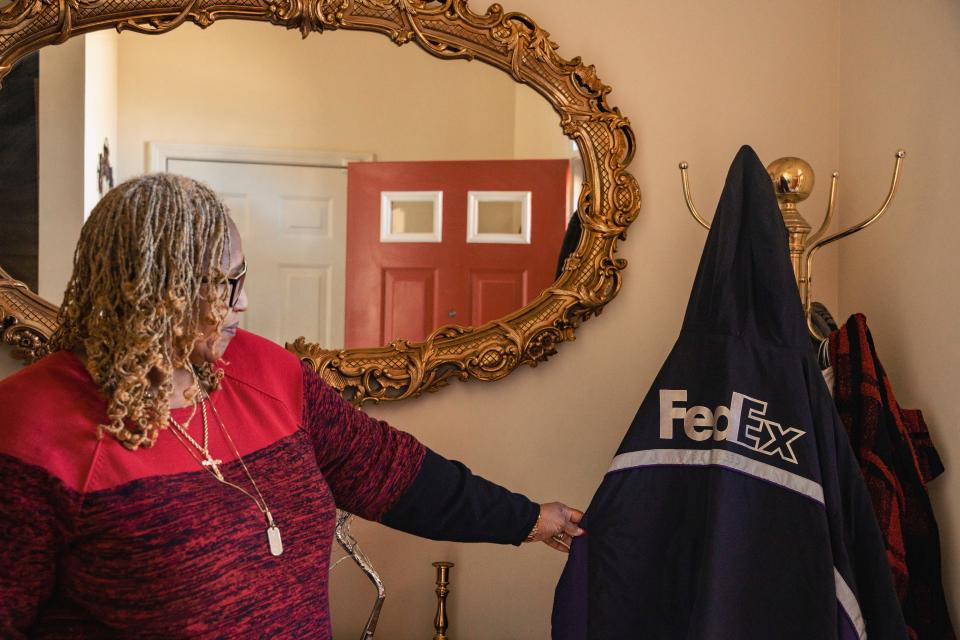
The week before she was killed, James worked nearly 70 hours, according to FedEx wage records submitted to TOSHA.When her parents moved in 2018 from Whitehaven to Horn Lake, Mississippi, James, 32, moved with them.
Some parents might bristle at an adult daughter still at home, but not Cora and Walter James. James was her mother’s prep cook at Thanksgiving, chopping vegetables and stirring sauces to spare Cora James’ carpal tunnel. She brought in the newspaper in the morning and, sometimes, breakfast.
And, like many millennials, she was her parents’ tech support. The TV, the computer, even paying the utility bills online – all of that was James’ domain.
“Our fireplace hasn't been lit since she died, because we don't know how to,” Cora James said.
Most of James’ closest friends were co-workers, including Chelsey Wyatt and Jessica Guffin. For fear the company would fire them for talking to a journalist, they agreed to be quoted only about their friendship with James.“I heard Jessica before I ever actually met her,” Guffin recalled. “We would hear her yelling like, ‘Come on, come on, let's go, let's go!’”It was just James motivating her team – and the loud volume didn’t match her chill demeanor. “When you did see her,” remembered Wyatt, “you were like, ‘Oh my God, this voice is coming out of her.’”

“We just clicked,” Guffin said. “And then next thing you know, we were going on trips and going to concerts… Holidays became a big thing and birthdays became a big thing and next thing you know we family.”
James was just one of thousands of laborers in the area’s transportation and material moving industry, which employs nearly 1 in 6 Memphis metro area workers, according to Bureau of Labor Statistics data from 2021.But these jobs can be dangerous. The warehousing and storage industry’s 2021 injury rate of 5.5 per 100 workers was double the U.S. average rate of 2.7 per 100 workers, according to BLS reports. Between 2018 to 2021, 117 work-related deaths occurred in the industry.The city’s economic fortunes are inextricably linked to this industry – and specifically to FedEx, where at least three of James’ relatives still work. Headquartered in Memphis, the company employs about 35,000 in the Memphis metro area.The World Hub had more than 11,000 employees in 2019, and in 2018, supported more than $4 billion in local wages, in part by drawing many other companies to set up shop nearby.
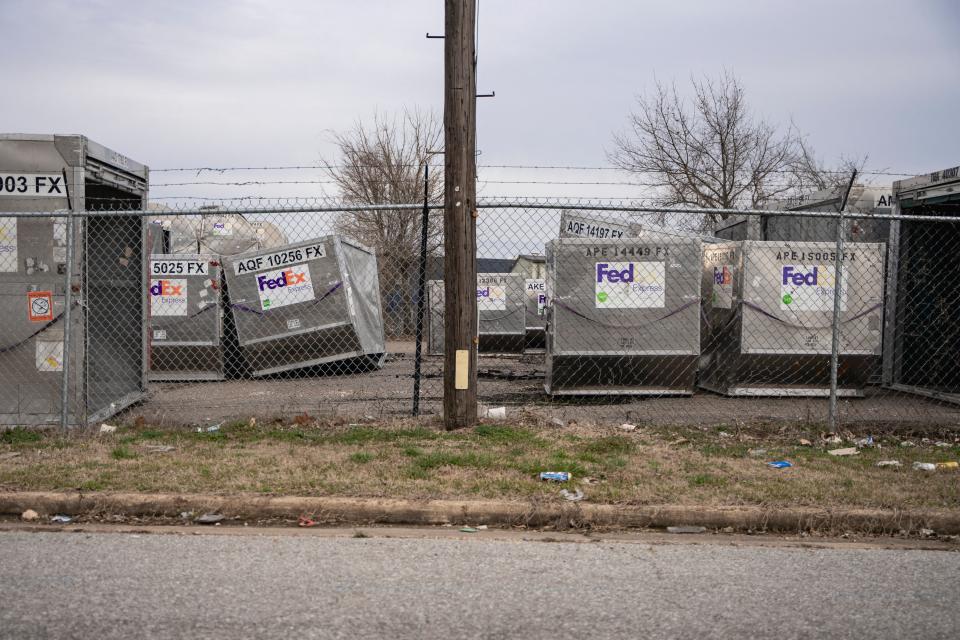
Since the start of the COVID-19 pandemic, hazards for FedEx workers have grown. In its 2021 fiscal year, the company had 15 work-related fatalities, according to its most recent annual report, up sharply from the prior year, when there were three work-related fatalities.Injuries at the World Hub rose significantly in the year before James’ death, according to data the company sent to TOSHA. In 2021, there were 86 separate injuries, an almost 50% increase from 2020.
FedEx injuries and illnesses
Infogram
The TOSHA investigation into James’ death revealed that workers hadn’t been properly trained on some equipment, the seatbelt safety procedures weren’t consistently enforced, and other safety rules, workers told investigators, they weren’t familiar with.
If James had wanted to use a ramp in good condition, she would have had a hard time finding one: Of the 39 ramps used in this area, 38 were in disrepair, including missing tires, loose and torn decking, and frame damage, according to FedEx maintenance and repair records supplied to TOSHA. That includes the last ramp James used. Of those 38 ramps, 27 were marked as not in service or waiting for repairs.
FedEx’s system for damaged ramps: Put them in the “ramp graveyard” until they were fixed. But the graveyard wasn’t fenced in or secure – which meant any of those 27 ramps could have been – and likely were – in use.
Managers knew workers were using broken ramps from the grave yard, and in one instance, told a worker to do so.“On the night of Jessica’s incident… my Manager told me to go to the ‘ramp graveyard’ and bring back a ramp that wasn’t 100% but good enough to use,” the employee told TOSHA. “I did not see a ramp that was usable in the ramp graveyard, so I did not return with one.”
At least four times in the two months before James was killed, FedEx squandered opportunities to repair or remove the damaged ramp that contributed to James’ death.
On Dec. 30, 2021, a FedEx maintenance inspection found that the ramp needed repairs for “cracks, safety chains, grating U-bolts and clips for security, wheel assemblies, tires, decal reflectors and repack wheel bearing,” according to the TOSHA report. Also, the ramp’s decking needed to be fixed and that a wheel was missing. “Waiting on vendor to pick up for repairs,” read FedEx’s inspection form.
A Jan. 6, 2022, repair order showed that the safety chains were fixed – but not that the ramp was out of service. Then, on Feb. 17, 2022, less than 24 hours before James’ death, another repair order showed that the safety chains had been repaired again, but nothing else, TOSHA found.
The last chance came about 25 minutes before the incident, when an employee was making his rounds in the heavy weight area. “Through reasonable diligence,” TOSHA noted, he should have noticed the ramp’s damage and taken the ramp out of service. He did not.
CJ, a former FedEx employee who did not want their full name used for fear of retaliation, remembers getting the early morning call that James had died.“The first thing that came to mind was the raggedy – excuse my French – raggedy-ass ramps.”Forklift operators had no choice but to use broken ramps, CJ said.“There's been plenty of times we had to use plywood to cover up a hole,” CJ said. “We had to make do with what we could.
“I can truly say safety was secondary.”
An employee interviewed after the incident suggested that cost may have been a deterrent. “I was told by a Manager that the Department was trying to purchase a new ramp from their budget but in the meantime to keep using the damaged ramps that were in the ‘best’ condition,” the employee told TOSHA.
According to online ramp sellers, a nearly identical new ramp would have cost about $20,000 – or the amount of 2022 revenue FedEx earned every seven seconds.
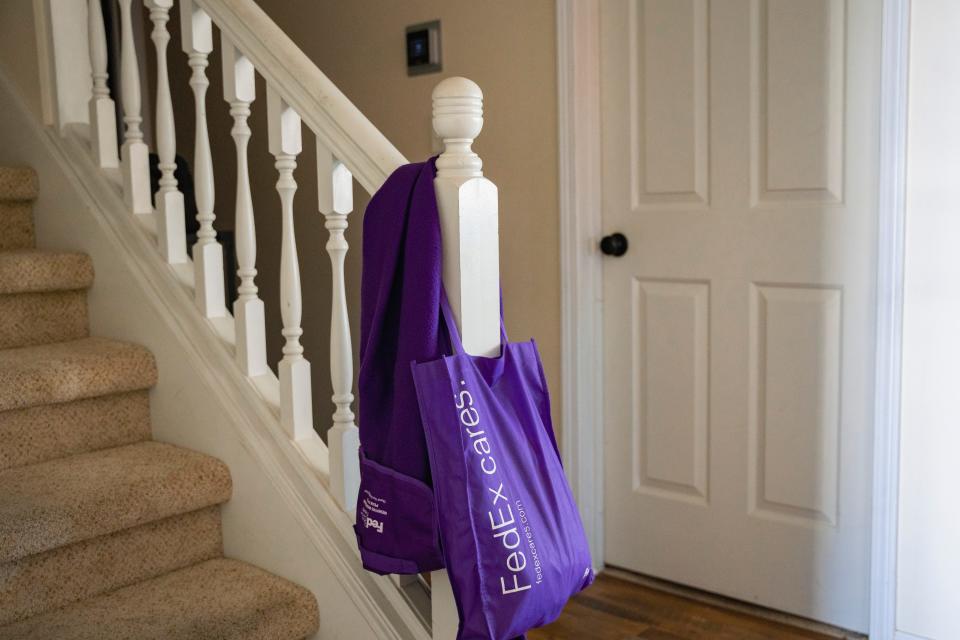
Since James’ death, FedEx has fenced the ramp graveyard, established a process to make sure damaged ramps aren’t still being used, redesigned ramp training for heavy weight-area forklift operators and started a new safety group.
All the forklifts in that area are getting new seat belts: Forklifts won’t start or move unless the seat belt has been fastened. And, sources say, FedEx has fixed or replaced the ramps.
“If it weren't for her, change would not have ever been made,” CJ said. “I just hate that my friend had to be an example.”
At James’ funeral, Shannon Brown, FedEx Express’ senior vice president of U.S. operations and chief diversity officer, offered words of condolences and high praise for James’ work ethic. (Brown has since retired.)
“Go be like Jessica when you leave here today,” said Brown. “Go do something above and beyond, and when you do it, remember Jessica.”
But being persistent, Cora James said, cost James her life.
“She was stubborn,” her mother said. “She was going to get the job done.“I wish she had just given up.”
MLK50 reporter Jacob Steimer, who is also a corps member with Report for America, contributed to this story. RFA is a national service program that places journalists in local newsrooms.
Wendi C. Thomas is the founder of MLK50: Justice Through Journalism, a nonprofit newsroom focused on poverty, power and policy in Memphis.
To read the complete version of this story, go to MLK50.com.
This article originally appeared on Memphis Commercial Appeal: FedEx workplace safety questioned after employee death

